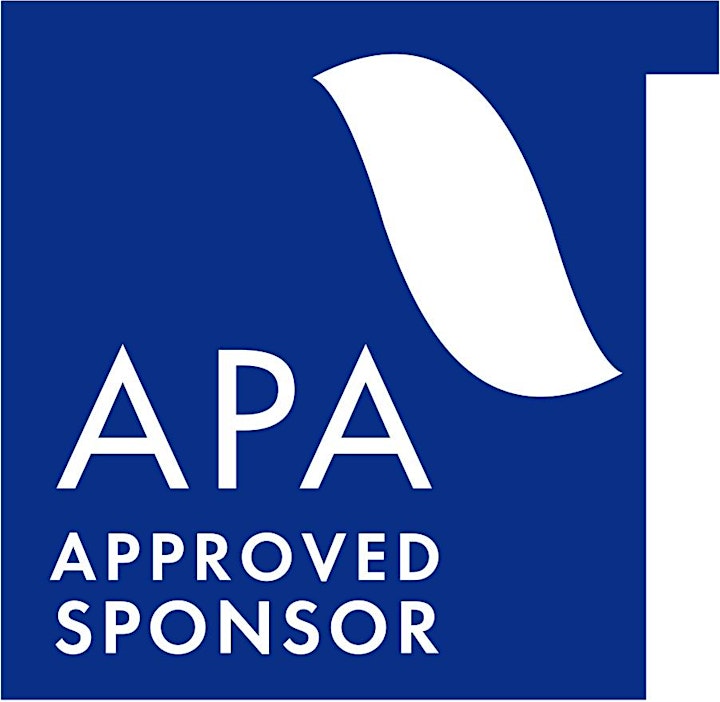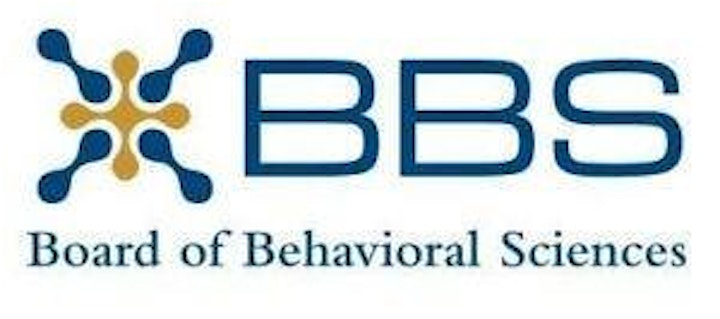
- This event has passed.
Creativity and Hypnosis
September 11, 2020 @ 11:00 am - 12:30 pm UTC+0

Presented by The Institute for Professional and Continuing Studies and The Society for Clinical and Experimental Hypnosis
Creativity and Hypnosis: Evoking Generative States for Positive Growth & Change.
Friday, September 2020
9:00AM-10:30AM PDT/ 11:00AM-12:30PM CST/12:00PM-1:30PM EST
Event held online via Zoom, link to access provided upon registration
This program, when attended in its entirety, offers 1.5 APA CEs for Psychologists, 1.5 Illinois State CEUs for Counselors and Social Workers, and 1.5 BBS California CEUs for LPCCs, LPSW, and LMFTs
Workshop Description:
How can we use hypnosis to provide more positive states with clinical populations, or to help individuals tap into more generative mental capacities to perform more efficiently, and have more fun in life? This online presentation will answer these questions, and provide hypnotic tools for creativity, and give an overview of the scientific literature of hypnosis and creativity.
This 90-minute presentation provides an overview of the history and theory of hypnosis and creativity research, as well as clinical aspects discussed in the scientific literature of creativity. It will also give suggestions for techniques and an overview of treatment planning with case studies from the presenter’s practice, as well as ideas for integration creativity work into therapy and hypnotic settings will also be discussed.
Learning Objectives:
After attending this intermediate-level workshop, participants will be able to:
1. Cite at least one theory of hypnosis and creativity.
2. Demonstrate a basic knowledge of the experimental and clinical literature of hypnosis and creativity.
3. Display a general understanding of treatment planning and how to integrate creativity and hypnosis into clinical work.
Professional Bio of Presenter #1, Scott Hoye, PsyD, Chicago Psychology Services, Chicago, IL
Scott Hoye, Psy.D. is a licensed clinical psychologist in in Chicago, IL. He works in private practice in Chicago Illinois. He has given workshops and presentations with the Society of Clinical and Experimental Hypnosis, APA’s Division 30, the Oregon Society of Clinical Hypnosis, and the Chicago Society of Clinical Hypnosis. He serves as Vice President of the Chicago Society of Clinical Hypnosis and has held the position of Member-at-Large of Division 30’s Executive Committee.
Websites: www.chicagopsychservices.com and www.chicagopsychologypodcast.com
Program Standards and Goals
This program meets APA’s continuing education Standard 1.1: Program content focuses on application of psychological assessment and/or intervention methods that have overall consistent and credible empirical support in the contemporary peer reviewed scientific literature beyond those publications and other types of communications devoted primarily to the promotion of the approach.
This program meets APA’s continuing education Goal 1: Program is relevant to psychological practice, education, and/or science.
Workshop Schedule (Shown in CST):
11:00 am – Event Begins
12:30pm – Event Ends
Registration and Fees:
Community members: $65.00
SCEH Members/Faculty: $55.00
Students: $15.00
Refund Policy:100% of tuition is refundable up to 48 hours before the program. Within 48 hours of the program, tuition is nonrefundable.
References:
Baer, J., Kaufman, J. C., & Gentile, C. A. (2004). Extension of the consensual assessment technique to nonparallel creative products. Creativity Research Journal, 16(1), 113-117.
Barrett, D. L. (2010) Dissociaters, fantasizers, and their relation to hypnotizability. In: D.L. Barrett (Ed.) Hypnosis and hypnotherapy, (2 vol.): Vol. 1: History, theory and general research, NY, NY: Praeger/Greenwood.
Barrios, M. V., & Singer, J.L. (1981). The treatment of creative blocks: A comparison study of waking imagery, hypnotic dream, and rational discussion techniques. Imagination, Cognition, and Personality, 1 (l), 89- 109.
Bowers, K. S., & van der Meullen, S. J. (1970). Effect of hypnotic susceptibility on creative test performance. Journal of Personality and Social Psychology, 14(3), 247-256.
Bowers, P. G. (1967). Effect of hypnosis and suggestions of reduced defensiveness on creativity test performance. Journal of Personality, 35, 311-322.
Bowers, P. (1978). Hypnotizability, creativity and the role of effortless experiencing. The International Journal of Clinical and Experimental Hypnosis, 26(3), 184-202.
Bowers, P. (1979). Hypnosis and creativity: The search for the missing link. Journal of Abnormal Psychology, 88(8), 364-372.
Brown, D. & Fromm, E. (1986). Hypnotherapy and hypnoanalysis. New York: Erlbaum & Associates.
Capurso, V., Fabbro, & F. Crescentini (2014). Mindful creativity: the influence of mindfulness meditation on creative thinking. Frontiers in Psychology, 4, 1020.
Cavallaro, F.I., Cacaace, I., Del Testa, M., Andre, P., Carli, G., De Pascalis, V., & Santarcangelo, E.L. (2010). Hypnotizability-related eeg alpha and theta activities during visual and somesthetic imageries. Neuroscience Letters, 470, 13-18.
Council, J. R., Bromley, K. A., Zabelina, D. L., &Waters, C.G. (2007). Hypnotic enhancement of creative drawing. The International Journal of Clinical and Experimental Hypnosis, 55(4), 467-485.
Costa, P. T., & McCrae, R. R. (1992). Revised neo personality inventory (NEO- PI-R) annex Five-Factor Inventory (Neo-FFI): Professional manual Odessa, FL: Psychological Assessment Resources.
Csikszentmihalyi, H. (1990) Flow: The psychology of optimal experience. New York: Harper & Row.
Fowler, K. (1988). Hypnotic transformation-three studies of theatrical role playing: A brief communication. The International Journal of Clinical and Experimental Hypnosis, 36(4), 249-255.
Getzels, J. W, & Csikszentmihalyi, M. (1976). The creative vision. New York: John Wiley & Sons.
Getzels, J. W., & Jackson, P.W. (1962). Creativity and intelligence: Explorations with gifted students. Oxford, U.K.: Wiley.
Gilchrist, M. (1972). The psychology of creativity. Melbourne, AU: Melbourne University Press.
Gilsky, M. L., Tartaryn, D. J., Tobias, B. A., Kihlstrom, J. F., & McConkey, K. M. (1991). Absorption, openness to experience, and hypnotizability. Journal of Personality and Social Psychology, 60(2), 263-272.
Gilsky, M. L. & Kihlstrom, J. F. (1993). Hypnotizability and facets of openness. The International Journal of Clinical and Experimental Hypnosis, 41(2), 112-123.
Goff, K, & Torrance, P. (2002). The Abbreviated Torrance Test for Adults. Bensenville, EL: Scholastic Testing Services.
Green, J. P. (2004). The five-factor model of personality and hypnotizability: Little variance in common. Contemporary Hypnosis, 21(4), 161-168.
Hoye, S. (2013). Creativity and hypnotizability in creative individuals (Doctoral dissertation). Retrieved from:https://www.researchgate.net/publication/292966753_Creativity_and_Hypnotizaility_in_Creative_Individuals.
Kahn, S., & Delaney, M. (2010, March). Hypnosis for creativity enhancement. Workshop conducted at the annual meeting of the American Society of Clinical Hypnosis, Nashville, Tennessee.
Kaufman, J. C., Plucker, J. A., & Baer, J. (2008). Essentials of creativity assessment. Hoboken, New Jersey: Wiley.
Kerr, B., & Gagliardi, C. (2003). Measuring creativity in research and practice. In: S. J. Lopez & C. R. Snyder (Eds.). Positive psychological assessment: A handbook of models and measures. Washington D.C.: American Psychological Association.
Kudesia, R. S. (2015). “Mindfulness and creativity in the workplace.” In: Reb and P. W. B. Atkin (Eds.). Mindfulness in organizations: foundations, research, and applications. New York: Cambridge University Press.
Perri, F. B. (2003). An investigation into the use of ego state therapy in enhancing creative output. The Australian Journal of Clinical Hypnotherapy and Hypnosis, 24 (2), 77-87.
CONTINUING EDUCATION:
Target Audience: Healthcare and Mental healthcare professionals, hypnosis practitioners, University faculty and students. Members of SCEH and the TCSPP community.
Psychologists. This program, when attended in its entirety, is available for 1.5 continuing education credits. The Chicago School of Professional Psychology is committed to accessibility and non-discrimination in its continuing education activities. The Chicago School of Professional Psychology is also committed to conducting all activities in conformity with the American Psychological Association’s Ethical Principles for Psychologists. Participants are asked to be aware of the need for privacy and confidentiality throughout the program. If program content becomes stressful, participants are encouraged to process these feelings during discussion periods. If participants have special needs, we will attempt to accommodate them. Please address questions, concerns and any complaints to Danielle Bohrer at 312-467-2364. There is no commercial support for this program nor are there any relationships between the CE Sponsor, presenting organization, presenter, program content, research, grants, or other funding that could reasonably be construed as conflicts of interest.
Counselors/Clinical Counselors. This program, when attended in its entirety, is available 1.5 hours of continuing education. The Chicago School of Professional Psychology is licensed by the Illinois Department of Financial and Professional Regulation (IDFPR) to provide continuing education programming for counselors and clinical counselors.License Number: 197.000159
Social Workers. This program, when attended in its entirety, is available for 1.5 hours of continuing education. The Chicago School of Professional Psychology is licensed by the Illinois Department of Financial and Professional Regulation (IDFPR) to provide continuing education programming for social workers. License Number: 159.001036
MFTs, LPCCs, and LCSWs. Course meets the qualifications for 1.5 hour of continuing education credit for MFTs, LPCCs, and/or LCSWs as required by the California Board of Behavioral Sciences. If you are licensed outside of California please check with your local licensing agency to to determine if they will accept these CEUs. The Chicago School of Professional Psychology is approved by the California Board of Behavioral Sciences (BBS) to offer continuing education programming for MFTs, LPCCs, LEPs, and/or LCSWs. The Chicago School of Professional Psychology is an accredited or approved postsecondary institution that meets the requirements set forth in Sections 4980.54(f)(1), 4989.34, 4996.22(d)(1), or 4999.76(d) of the Code.
Participation Certificate. The Chicago School of Professional Psychology is able to provide students and other participants who simply wish to have documentation of their attendance at the program a participation certificate.
Non Psychologists. Most licensing boards accept Continuing Education Credits sponsored by the American Psychological Association but non-psychologists are recommended to consult with their specific state-licensing board to ensure that APA-sponsored CE is acceptable.
*Participants must attend 100% of the program in order to obtain a Certificate of Attendance.
The Chicago School of Professional Psychology is approved by the American Psychological Association to sponsor continuing education for psychologists. The Chicago School of Professional Psychology maintains responsibility for this program and its content.


